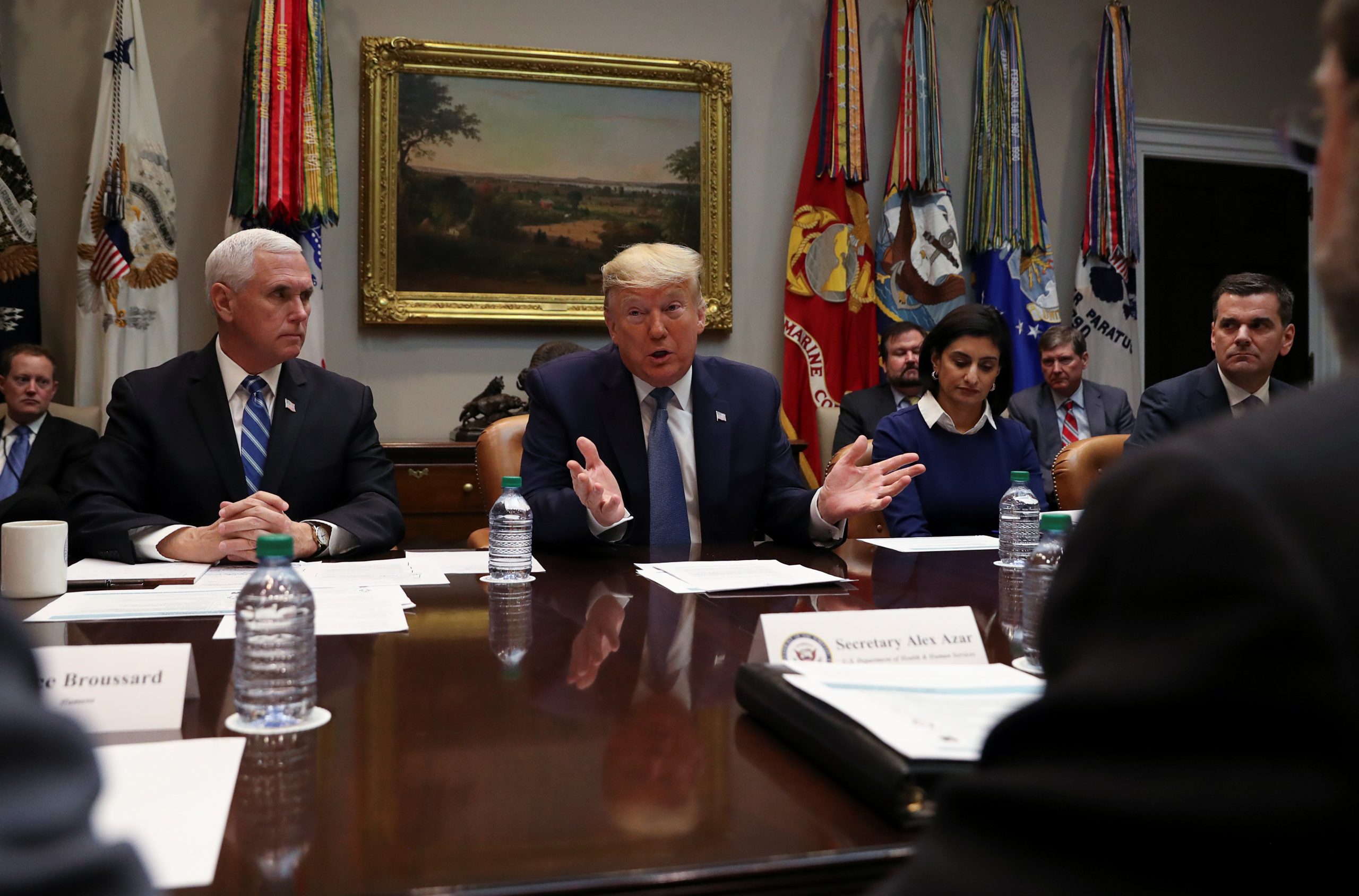The United States is “far behind” in testing people for the new coronavirus and the Trump administration should make ramping up that capability its highest priority in fighting the outbreak, the top Democrat in the Senate said on Tuesday.
Health officials in New York state and other parts of the country hard hit by the highly contagious respiratory illness have complained about a shortage of testing capacity.
Private U.S. health insurance companies have agreed to cover coronavirus treatment and waive co-payment fees for coronavirus testing, U.S. Vice President Mike Pence, who is heading the U.S. response to the outbreak, said at a White House meeting with insurance company executives.
The companies also agreed to cover telemedicine for patients to get care without having to leave home, Pence added.
The White House also has come under attack for relying on kits provided by the U.S. Centers for Disease Control and Prevention (CDC) at the outset of the outbreak. Some of those tests had a glitch that delayed confirmation of results.
“This is a healthcare crisis, it demands a healthcare solution,” Senator Chuck Schumer, a Democrat, said on the floor of the Senate as lawmakers considered measures to protect the economy from a sharp contraction due to the outbreak.
Schumer accused President Donald Trump of being focused more on the sharp sell-off on Wall Street than helping American families.
A total of 761 confirmed cases of the coronavirus that can lead to pneumonia and other complications were confirmed nationwide as of late Tuesday morning, according to a tally by Johns Hopkins University. There have been 27 U.S. coronavirus-related deaths, most of them in Washington state.
After U.S. stock indexes posted their biggest one-day selloff since 2008 on Monday, Trump said his administration would take “major” steps to gird the economy and discuss a possible payroll tax cut with congressional Republicans.
He did not provide details, but said a news briefing would be held on Tuesday.
A payroll tax cut could encourage consumer spending and help households that might otherwise struggle to make rent and mortgage payments on time, or pay medical bills if family members’ work hours are reduced during the outbreak.
While some Trump administration officials have broached the idea of targeted tax relief to help airlines and other industries hurt by the outbreak, Democrats are pushing for paid sick leave and other measures to protect workers.
“Congress needs to be taking steps to make sure families who have to take time off work do not fall into financial ruin. This is not the time to bail out industry,” Senator Chris Murphy, a Democrat, said in a statement on Tuesday.
U.S. stock indexes rose on Tuesday morning, but gave back most or their early gains.
VIRTUAL CLASSES
More than 113,000 people have contracted the coronavirus worldwide with about 4,000 deaths since it surfaced in China late last year. More than 100 nations have reported cases, with Italy bearing the brunt of the outbreak in Europe.
Italy on Monday ordered all 60 million citizens to stay home other than for work or emergencies, banning public gatherings and suspending sporting events.
In the United States, at least 34 states and the District of Columbia have reported infections of COVID-19, the illness caused by the virus.
Washington state has been the hardest hit, with a nursing home in the Seattle suburb of Kirkland accounting for the bulk of the state’s 22 confirmed deaths.
In California, the Grand Princess cruise ship docked at the Port of Oakland on Monday and began offloading its 2,400 passengers, most of whom will go into quarantine at military bases. The vessel was barred from returning to San Francisco last week due to a coronavirus outbreak on board.
California and New York each have more than 140 confirmed coronavirus cases.
As the outbreak spreads, daily life in United States has been increasingly disrupted, with concerts and conferences canceled, and universities telling students to stay home and take classes online.
“Not every community has an outbreak going on right now, but people should know that this is likely to get worse before it gets better,” U.S. Surgeon General Jerome Adams said in an interview on ABC’s “Good Morning America” program.
U.S. health officials have urged older people, especially those with chronic medical concerns, to avoid big social gatherings, cruise ships and airline flights. The fatality rate is significantly higher among those 80 or older, according to a CDC report last month based on cases in China.
The public is advised to wash hands frequently and practice “social distancing” – minimizing unnecessary contact with others in public. That has led to speculation U.S. presidential candidates might have to cancel large political rallies.
Trump, who is running for re-election, as well as the two candidates most likely to win the Democratic nomination to challenge him, former Vice President Joe Biden and Senator Bernie Sanders, are in their 70s.
Several U.S. lawmakers have gone into self-quarantine after being in contact with a person at a conference who later tested positive for coronavirus.
Schools in some states, including New York and New Jersey, have asked students to prepare to study from home via online instruction if needed.
(Reporting by Richard Cowan, Susan Heavey and Lisa Lambert in Washington and Shubham Kalia in Bengaluru; Writing by Paul Simao; Editing by Bernadette Baum and Bill Berkrot)

























 Continue with Google
Continue with Google